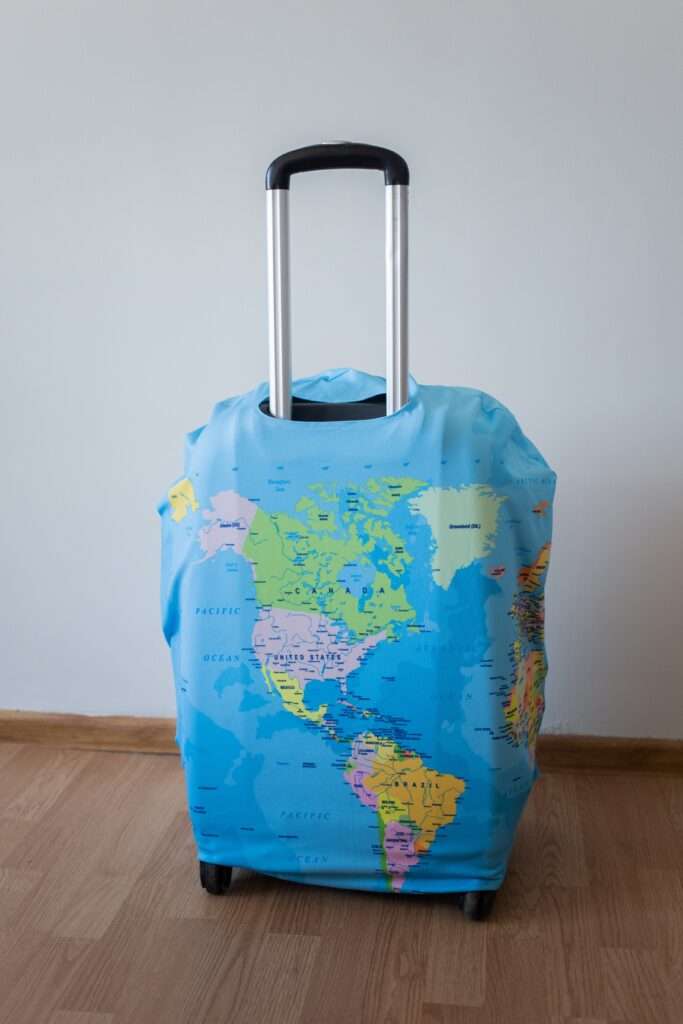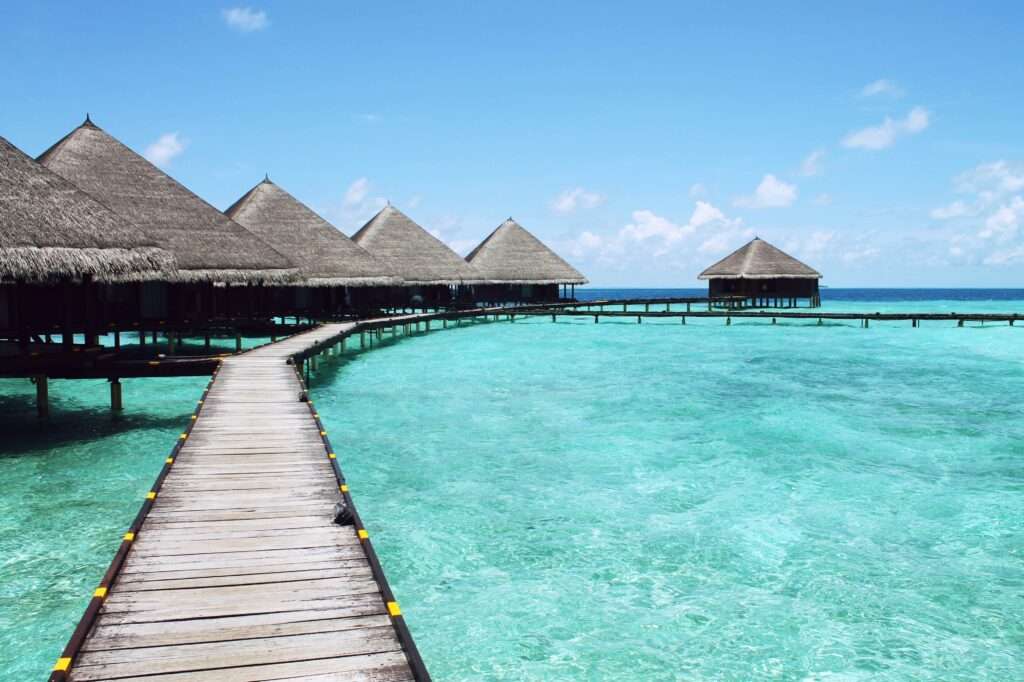
“I really want to travel and explore some great places in the world but the recession and economic downturn has made it so difficult! What can I do?” If this sounds anything like the thoughts swirling in your head, then the great budget travel tips I’m sharing in this piece are coming to your rescue!
If you are itching to embark on a thrilling journey, explore new cultures, and create lifelong memories like I am, this dream of travel can become a reality, even during a recession. Your desire to explore the world and embark on incredible trips doesn’t have to be put on hold. Budget travel is your secret weapon to unlock the world’s wonders without breaking the bank. A savvy approach to satisfy your wanderlust that focuses on maximising value and minimising expenses. So, tighten your seatbelts and get ready to discover how you can wander far and wide without draining your wallet.
In these uncertain economic times, saving money has become an understandably top priority. But that doesn’t mean you have to sacrifice quality experiences. By embracing the realm of budget travel, you can stretch every dollar and still experience the joy and freedom of exploring our beautiful planet.
Budget travel is really about effective planning, smart decision-making and resourcefulness. It’s about finding creative ways to save money without compromising on the quality of your adventures. Whether you’re a student, a young professional, a family, or simply someone who appreciates value, mastering the art of budget travel can open up a world of opportunities that were once thought to be out of reach.

Why Budget Travel Matters
Imagine sipping a cup of aromatic coffee in a quaint European café, strolling through vibrant Asian markets, or basking in the breathtaking beauty of natural wonders. With a well-crafted budget travel plan, all of these experiences can become a reality, allowing you to explore the far corners of the globe without emptying your pockets.
The essence of budget travel lies in being mindful of your expenses and making choices that align with your financial capabilities. It’s not about depriving yourself of adventure; it’s about finding ingenious ways to unlock hidden gems and uncover unique experiences that are often overlooked by those bound to a hefty price tag.
So, if you’re ready to embark on a journey of a lifetime while keeping your bank account intact, stay tuned. In the following sections, we’ll compare the allure of budget travel with luxury indulgence, delve into the secrets of crafting a good travel budget, explore traveling on a budget with family, and, of course, equip you with invaluable tips for traveling on a shoestring during a recession.
Remember, the world is calling, so let’s dive into the exciting realm of budget travel and embrace the art of traveling smartly during challenging times.
Budget Travel vs. Luxury
When it comes to travel, there are two distinct paths to choose from: budget travel and luxury travel. While luxury travel offers lavish accommodations, upscale dining, exclusive experiences and prioritises indulgences and comfort, budget travel takes a more frugal and financially conscious approach. In the midst of a recession, understanding the differences between these two approaches becomes even more crucial so as to maintain financial stability. Let’s highlight the benefits of embracing budget travel over luxury during times of economic uncertainty.
Budget travel emphasizes affordability, resourcefulness, and finding value in every aspect of the journey. It involves seeking out cost-effective accommodations, opting for local eateries and street food, and taking advantage of free or low-cost activities. It allows you stretch your budget further and explore more destinations or engage in additional activities.
It also encourages a sense of adventure, immersing travelers in local culture and providing opportunities for authentic experiences and deeper connection with the communities being visited. While it may not offer the same level of opulence as luxury travel, budget travel allows for more flexibility and the freedom to allocate resources to what matters most to you, which can make it even more rewarding.
Budget travel also fosters a spirit of adaptability, responsible spending and resilience, which are invaluable skills during challenging economic times. The main drawback of budget travel is the need for careful planning and research to ensure quality and safety while sticking to a limited budget.
So, as you plan your next journey, consider the benefits of budget travel and embark on a path that allows you to discover the world without compromising your financial well-being.

What is a Good Travel Budget?
A well-crafted travel budget is the foundation of successful budget travel during a recession. Your budget comprises several essential components that need careful consideration: transportation, accommodation, meals, and activities, being front and centre of this. By understanding and effectively managing these elements, you can make informed decisions to keep your travel costs in check while still enjoying enriching experiences.
A travel budget is essentially your roadmap. Learn how to optimise your expenses to ensure memorable experiences while saving money during challenging times using these guidelines;
Transportation:
Transportation expenses can make up a significant portion of your travel budget. Begin by considering how you’ll reach your destination and move around during your trip. Explore different options, such as flights, trains, buses, rentals or even carpooling.
Research and compare prices, take advantage of deals and discounts, and consider alternative routes or off-peak travel times. Being flexible with your travel dates can help you secure more affordable options.
Also, factor in additional costs like baggage fees or fuel expenses. Keeping transportation costs in check is crucial for maintaining a healthy travel budget.
Accommodation:
Finding comfortable yet affordable accommodations is crucial for budget travel. Look beyond traditional hotels and consider alternatives like Airbnb, hostels, guesthouses, vacation rentals, house-swapping, or even Couchsurfing. Embracing shared accommodations or staying in less touristy areas can also help stretch your budget.
Consider the location, amenities, safety of the area, and reviews while balancing them with your budgetary constraints. Utilise online platforms to compare prices, read reviews, and find hidden gems that offer great value for your money.
Meals:
Food is an integral part of any travel experience, and it’s an area where overspending can easily happen. Take advantage of local markets, budget-friendly street food vendors, and affordable eateries to savour authentic flavours while saving money. Better still, prepare meals yourself or picnic with local produce, giving you a taste of the culture while keeping costs low.
Activities:
Experiencing the local culture and attractions is a highlight of any journey. Prioritise your must-see activities and allocate a portion of your budget accordingly. Look for free or low-cost attractions and research city passes or bundled activity deals. Take advantage of discounts for students or seniors which many people forget to do sadly. Immerse yourself in the destination’s culture and engage in those unique experiences that are meaningful to you without draining your wallet.
Creating a Realistic and Flexible Travel Budget
A good travel budget is the compass that guides you through the maze of expenses and creating one requires a delicate balance of realism and flexibility. Start by estimating your overall trip costs and breaking them down into daily or weekly allowances. Consider the destination’s cost of living, exchange rates, and potential fluctuations. Leave room for miscellaneous expenses that may arise during your journey such as a health issue or theft.
Your travel budget is not set in stone and should serve as a guide rather than a rigid framework. A budget that is flexible is what allows you to adapt to unforeseen circumstances and seize good spontaneous opportunities without derailing your finances or travel plans. Allow for adjustments and be open to serendipitous moments that will enrich your journey.
Again, remember to research, compare, and make informed decisions throughout your journey. With a realistic and flexible travel budget, you can navigate the challenges of a recession and make your travel dreams a reality while being financially prudent.

Budget Travel Tips during a Recession: Money-Saving Strategies for Memorable Adventures
With careful planning, smart decision-making, and a dash of creativity, you can embark on budget-friendly adventures that won’t compromise the quality of your experience. From finding affordable flights and accommodations to enjoying cost-effective meals and exploring free or low-cost attractions, let’s unlock the details of the practical tips and strategies to help you save money while traveling during a recession.
Finding Affordable Flights, Accommodations, and Transportation:
Flights:
Start by setting fare alerts and monitoring prices to your desired destination well in advance. 6 months or more ahead of time is best. Be flexible with your travel dates and consider booking midweek or during off-peak seasons when prices tend to be lower. Securing your ticket at night when the owls are on patrol can also get you lower-priced tickets!
Compare prices across different airlines and use flight search engines or aggregators like Skyscanner to find the best deals. Consider flying into alternative airports or utilising budget carriers. Additionally, consider redeeming credit card points or airline rewards to offset flight costs.
Accommodations:
If you won’t be camping with a family member, friend, or someone else you know, you have the task of finding a decent place to stay at. Ask around and research accommodations using online platforms like Tripadvisor. Look for budget hotels, hostels, guesthouses, or vacation rentals that offer value for money. Consider booking directly with the property or contacting them to negotiate better rates.
Alternatively, explore house-swapping or home-sharing options for a unique and cost-effective experience. Staying in less touristy areas or sharing accommodations with other travellers can also help stretch your budget.
Transportation:
Seek out cost-effective options within and around your destination. Use public transportation such as buses, trains, or subways, which are often cheaper than taxis and ride-hailing services. Consider walking or biking when exploring compact city centres.
If renting a car, compare prices from different rental companies and book in advance to secure better deals. Carpooling or ridesharing services can also be cost-effective options, especially for longer journeys.
Cost-Effective Meal Planning and Dining Options:
Meal Planning:
Planning your meals in advance can save you a ton of money! Consider booking accommodations with kitchen facilities, allowing you to prepare some meals yourself. Where possible, travel with some of your own food items. Also, visit local markets or grocery stores to purchase ingredients for simple and budget-friendly meals. Pack snacks and picnic lunches for day trips, avoiding expensive restaurants or common tourist traps.
Dining Options:
When dining out, seek out affordable local eateries or street food vendors. Ask helpful locals for recommendations on where to find authentic and inexpensive meals. Opt for lunch specials or set menus, which are often cheaper than dinner options. Take advantage of happy hour deals or early bird specials at restaurants. Additionally, consider sharing meals or ordering appetisers instead of full entrees to save money.
Exploring Free or Low-Cost Activities and Attractions:
Research and Plan:
Before your trip, research free or low-cost activities and attractions in your destination. You will find things like museums with discounted or free entry days, parks with no admission fees, or festivals and cultural events that offer affordable entertainment.
Take advantage of guided walking tours, which often have a “pay what you can” or donation-based system. If you’re travelling with others, look out for activities that grant discounts based on the number of people in the group rather than charging per head. Check relevant Facebook groups, online travel forums, or local tourism websites for recommendations on budget-friendly activities.
Embrace Nature:
Mother Nature provides countless opportunities for low-cost exploration. Visit parks, gardens, and beaches where you can enjoy outdoor activities like hiking, swimming, or picnicking. Seek out scenic viewpoints or natural landmarks that offer stunning vistas without the need for expensive tickets. Consider camping or staying in nature resorts for a more immersive and cost-effective experience.

Budget Travel with Family
Traveling with your family is an opportunity to create cherished memories and strengthen bonds, but admittedly, it can get pricey. Financial responsibility and fun-filled experiences have to go hand in hand here. Consider the following tips in the major expense categories to maximise your travel experience while keeping costs under control:
Accommodations:
Opt for family-friendly accommodations that provide amenities suitable for families, such as kitchenettes or laundry facilities. Explore house-swapping or home-sharing platforms to enjoy the comforts of a home away from home at a fraction of the cost. Book in advance or during off-peak seasons to secure more affordable rates.
Meals:
Dining out for every meal will quickly strain your travel budget. To save money, prepare some meals yourself. Visit local markets to shop for fresh ingredients to use. Pack picnics for day trips or outdoor activities. When eating out, look for family-friendly restaurants that offer kids’ menus or special discounts. Embrace the local street food scene, where you can sample delicious and affordable treats.
Activities:
Engaging in family-friendly activities doesn’t have to be expensive. Look for free or low-cost attractions in your destination, such as parks, beaches, and museums with discounted or family rates. Also take advantage of local festivals and outdoor adventures that provide entertainment. Research and plan ahead to ensure you make the most of your time and money while catering to the interests of everyone in your family.
Budget travel destinations to consider that are family-friendly
Choosing the right destination can significantly impact your ability to travel on a budget with your family. Consider the following suggestions for destinations that offer a balance between affordability and family-friendly experiences:
- Southeast Asia: Countries like Thailand, Vietnam, and Indonesia offer a wealth of cultural experiences, beautiful landscapes, and affordable accommodations. Explore bustling markets, visit ancient temples, or indulge in pristine beaches while staying within your budget.
- Eastern Europe: Destinations such as Hungary, Czech Republic, and Poland combine rich history, stunning architecture, and affordable prices. Explore charming old towns, visit castles, and immerse yourselves in vibrant local cultures without financial strain.
- National Parks: If you prefer outdoor adventures, consider visiting national parks within your own country or nearby. Camping or staying in cabins can be more cost-effective than traditional accommodations. Enjoy hiking, wildlife spotting, and family-friendly activities while reconnecting with nature.
By following these tips, you can make savvy decisions that allow you enjoy quality time with your loved ones while exploring the world within your means.

In Conclusion
Navigating the world of budget travel during a recession opens up a realm of possibilities for rewarding and memorable experiences. It’s all about the right perspective and adhering to practical tips and strategies, so you can save money while still enjoying the wonders of travel. Throughout this article, we have highlighted the importance of creating a realistic and flexible travel budget, the benefits of budget travel during a recession, and specific tips for different aspects of travel, including budget travel with family.
Whether you’re a seasoned traveler or new to the world of exploration, the significance of saving money during your journeys cannot be overstated. By being mindful of your spending in each category and seeking out cost-effective options, you can make the most of your travel funds. Whether by cutting costs on transportation and accommodation, and enjoying affordable meals and activities, every aspect of your trip can be optimised to ensure you get the most bang for your buck.
So, embrace the mindset of budget travel during a recession and embark on your next adventure with confidence. With careful planning, resourcefulness, and an open mind, you can create lasting memories, forge connections with new cultures, and satisfy your wanderlust without straining your finances. Remember that the joy of travel comes not from the amount of money spent, but from the moments and experiences that leave a lasting impact.
Want to have a chat about managing your finances properly? Reach us here
